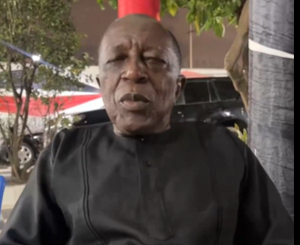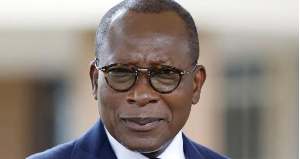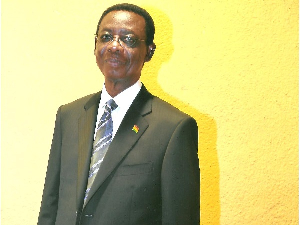Ghana’s Vice-President Dr Mahamudu Bawumia has stressed the importance the Akufo-Addo government attaches to the ongoing digitisation agenda, emphasising that a digitised, formal economy is a crucial plank of the Ghana Beyond Aid agenda.
Citing the impact a number of such programmes have had on national development, Dr Bawumia assured stakeholders in the technology sector of Government’s commitment to the digitisation agenda, and urged them to partner Government as she pushes for a digitally-aware population.
Dr Bawumia underscored the importance of a formal, digitalised economy and Government’s commitment to achieving this when he gave the keynote address at the Ghana Digital Roadmap Conference in Accra on Wednesday, 15 May 2019.
The two-day conference, organised by the Ministry of Communication and under the theme: “Moving Ghana Beyond Aid: Expanding the Local Digital Economy”, will review the almost 20 year-old ICT for Accelerated Development (ICT4AD) Policy document in line with digital opportunities and generate ideas to develop a digital strategy and an implementation plan to establish Ghana as the leader in ICT innovation in sub-Saharan Africa by 2023.
A working party, made up of government officials, the private sector and tech innovators is expected to incorporate any new ideas generated at the Conference and present a draft new policy document after a specialist retreat.
Dr Bawumia pointed out that the Ghanaian society continues to be largely informal, with access to services, targeting in the delivery of public services to those who need these services most (the elderly, the vulnerable, the deprived, and even pensioners) difficult, and in some cases depending on who you know.
“But with digitisation, we are introducing new and more efficient ways of doing things. We are changing the way things are done in the affected institutions for the benefit of ordinary Ghanaians. From the onset of his government, President Nana Addo Dankwa Akufo-Addo has concerned himself with building a new, efficient Ghana under the Ghana Beyond Aid vision, which is firmly anchored in leveraging technology for accelerated development.
“In a well-functioning society, citizens don’t need to know someone or pay someone to get a passport, driving licence and even access to water and electricity. We cannot build a fair and equitable society that runs on engines of bribes, ‘goro boys’ and ‘land guards’,” he declared.
“The ongoing mass registration for the national ID Card, popularly known as the Ghana Card, will have a major impact, because it will serve as a central database with linkages to the Ghana Revenue Authority, courts, the police, passport office, National Health Insurance, DVLA and more. Among others, this will make the provision of services much easier and better targeted, while eliminating the need to carry so many cards to access a service,” Dr Bawumia emphasised.
The digitisation agenda, he maintained, is firmly on course. “We have implemented a Digital Property Addressing to provide a digital address to every location in Ghana. Digital Drivers licenses and digital vehicle registration have also been introduced. Mobile money payments interoperability has been implemented amongst telcos and between mobile money wallets and bank accounts.
“The digitisation of the land registry is in progress. Passport applications are now online, and passport duration has increased from 5 to10 years. Renewal of NHIS registration via mobile phone has been a phenomenal innovation with an average of 70,000 renewals every week. The introduction of Paperless Port system has reduced the time to clear goods at the ports to less than 48 hours, and there are many more examples of what we are doing.”
Dr Bawumia challenged the conference attendees to diligently study the existing policy and come up with a “comprehensive, flexible digital roadmap that provides the blueprint for all actions that align our digital initiatives with the short-term and long-term vision of this government, clearly shows how we can grow our local ICT industry beyond the boundaries of Ghana while detailing how we can bridge the urban-rural divide by expanding digital services to rural and under-served communities.
“We believe that now is the time to take a critical look at our seminal ICT policy document, the ICT for Accelerated Development Policy, identify gaps and recommend changes required to provide the right framework to harness Ghana’s digital economy and also nurture our local ICT industry.”
General News of Thursday, 16 May 2019
Source: classfmonline.com













